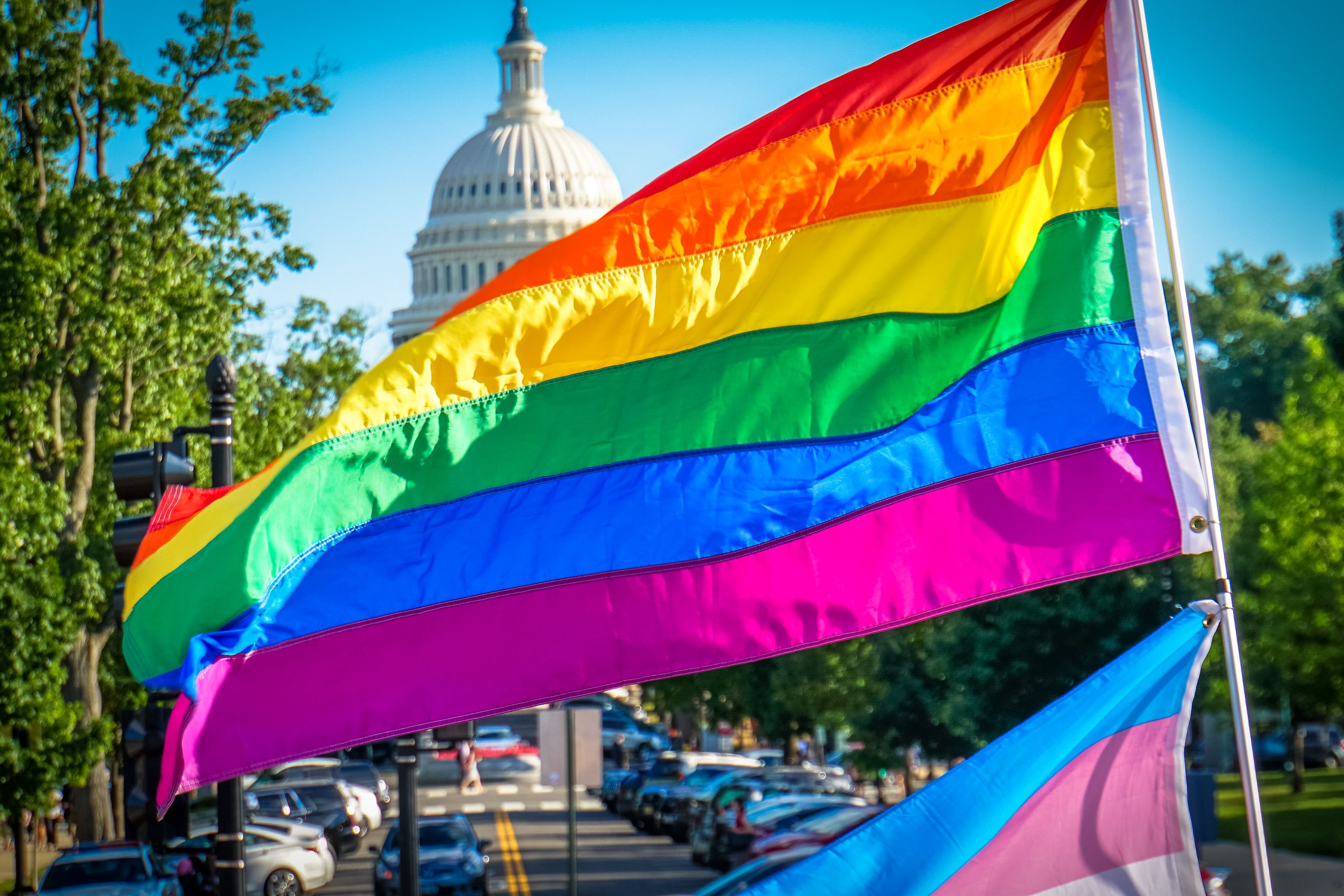The Republican Case for Federal LGBT Rights

For the national Republican Party, this issue gives us the chance to do some good, win back millions of voters we’ve alienated, and move on to other important areas where we still have the moral high ground.
Some Republican operatives think they’re better off continuing to fight on this front of the culture war, and plenty of Democratic operatives think the same. The partisan vote in the House reflects an unwillingness—on both sides—to negotiate. But gay and trans rights are no longer the wedge issue they were in the early aughts. Times have changed, and Republicans’ best bet now is to reach a negotiated peace with the other side.
Democrats know the current version of the Equality Act could never pass in the Senate in its current form. And it might seem that in the current environment, common ground is out of reach. But senators of both parties have no chance of portraying themselves as reasonable unless they make a good-faith effort to reach a deal. Democrats cannot clear this hurdle unless they deal fairly with Republicans like Susan Collins or Lisa Murkowski, as well as conservative Democrat Joe Manchin. As for Republicans, they need to be willing to back an alternative rather than just saying “no.”
For religious conservatives, and by extension the Republicans who represent many of them, the problem with the current bill is that it appears to threaten their religious freedom and fails to adequately grapple with First Amendment concerns. They cannot support legislation that would imperil their operations, including the vital social services they provide in underserved communities around the country.
Several states have enacted laws similar to the Equality Act in recent years, but always with religious liberty protections. For instance, Rhode Island has a robust anti-discrimination law with reasonable protections for religious groups. These protections ensure that Catholic Social Services—and any other religious groups—can continue to provide valuable services in the state.
Similarly, Utah’s success in passing anti-discrimination legislation offers a path forward. Although its state government is controlled by Republicans at every level, Utah has some of the strongest protections for gay and trans people in the nation. In 2015, with the support of the Church of Jesus Christ of Latter-day Saints and state LGBTQ leaders, Utah’s Republican legislature passed a comprehensive non-discrimination bill with reasonable protections for religious organizations.
I worked on the campaign to pass it, and found that Republicans were far more open to gay rights if a bill simply respected these protections, and Democrats were able to get behind it as well. It was a fair outcome that both sides liked. As a result, the law has enjoyed widespread support among the public. The people of Utah are tied with Vermont for the second-highest rates of support for LGBTQ non-discrimination protections.
In Congress, instead of working toward such a deal, many Democrats grandstand and posture, insisting—wrongly—that they can pass the Equality Act as currently written. Rep. David Cicilline of Rhode Island, for instance, has never complained about the religious exemptions in his own state’s anti-discrimination laws, yet for some reason he draws a line in the sand at the federal level, denouncing any effort to provide similar exemptions in the Equality Act. Meanwhile, most Republicans complain about these missing provisions without offering their support for a bill that included such guarantees.
Utah should serve as a blueprint for both Democrats and Republicans in the Senate. The Fairness for All Act, an alternative version of the Equality Act, draws from the popular Utah law. Senate Republicans should introduce this bill and use its language to amend the Equality Act.
Support by Republican lawmakers for these types of changes would deliver a broader win to religious conservatives as well: Perhaps surprisingly, the best and possibly only way to achieve robust religious-freedom protections nationwide is by agreeing to LGBTQ non-discrimination protections, codifying an expansion of civil rights for religion alongside protections for sex, sexual orientation and gender identity.
This move would also help Republicans gain back some of the ground they lost with voters over the past several years. Public opinion polling shows that support for LGBTQ civil rights continues to climb, particularly in more educated, suburban districts.
With public support at sky-high levels, a version of the Equality Act will pass eventually. The question is: Which version? And will Republicans take the opportunity to shape it?
Religious conservatives should seize this chance now to influence the process before the culture shifts even more decidedly against them on LGBTQ issues. By making peace on this issue, religious conservatives could get the legal protections they want while also showing themselves to be decent and reasonable people—winning them political goodwill for any future disagreements that might emerge, and allowing lawmakers to move on to pressing issues like the crushing federal debt, defeating coronavirus, unaccompanied minors at the border, human rights abuses by the Chinese Communist Party, crumbling infrastructure and energy independence.
Responsible legislation is within reach, but you can’t win if you don’t play. Reaching a settlement on these issues is better for people of faith, better for LGBTQ people, and better for the country. Republicans should sit down with Democrats and insist on a deal that works for both sides. Common ground is possible.